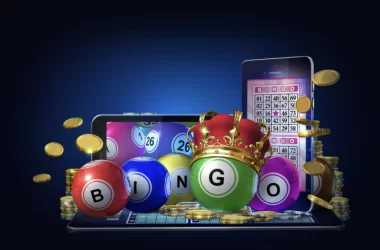Let’s be honest. When most people think of bingo, they picture a social hall, a few dabbers, and a whole lot of luck. And sure, at its core, bingo is a game of chance. The balls pop out randomly. There’s no way to predict the next call.
But for the serious player—the one who sees it as a strategic pursuit—there’s a different game entirely happening beneath the surface. It’s a game of math, psychology, and meticulous management. It’s about turning a game of pure luck into one where you have the absolute best possible shot at winning. That’s what we’re diving into today.
The Unchangeable Foundation: Understanding Bingo Probability
Before we talk about strategy, we have to talk about cold, hard math. You can’t argue with it, and honestly, you shouldn’t try. Probability is the bedrock.
The basic question is: what are the odds of winning? Well, that depends entirely on two things: the number of cards you’re playing and the total number of cards in play.
Think of it like this. If you buy one ticket for a raffle where 100 tickets are sold, you have a 1 in 100 chance. Simple. In bingo, it’s the same principle, but the numbers are much, much bigger. Your probability of winning a specific game is roughly:
(Number of Cards You Play) / (Total Number of Cards in Play)
This is why your first strategic move is always about card volume. Playing more cards directly increases your mathematical stake in the game. But—and this is a huge but—there’s a catch. There’s always a catch.
Strategic Gameplay: More Than Just Buying Cards
Okay, so if more cards are better, why not just buy a thousand? Well, for starters, your wallet might object. More importantly, your brain will. This leads us to our first real strategy.
1. The Art of Card Management
This is the single most important skill for a serious bingo player. It’s not about having the most cards; it’s about effectively managing the cards you have.
- Find Your Sweet Spot: Don’t buy so many cards that you can’t track them all. A missed number is a lost opportunity. It’s like trying to juggle too many balls—you’ll drop one. Start with a number you can comfortably handle and slowly increase as your speed improves.
- Seek Diversity: When you select your cards, try to choose ones with a wide spread of numbers. You want to avoid having cards that are too similar. If all your cards are heavy on B-column numbers, you’re putting all your eggs in one basket. A diverse portfolio of numbers increases the chance that any called number will be on at least one of your cards.
- Pattern Recognition: For non-standard games (like Picture Frame, Four Corners, etc.), quickly identify the pattern on each of your cards. Knowing what you’re aiming for helps you prioritize your daubing.
2. Game Selection: Where You Play Matters
All bingo sessions are not created equal. A savvy player chooses their battlefield.
Look for sessions with fewer players. Remember that probability formula? A game with 20 people is fundamentally different from a game with 200. Fewer players means a smaller denominator, which means your cards represent a larger slice of the probability pie. Off-peak hours, like a weekday afternoon, can be a goldmine for this reason.
Also, consider the prize structure. A “Pack” game or a “Progressive Jackpot” might have a bigger payout, but the competition is often fiercer. Sometimes, consistently winning smaller pots is a more profitable long-term strategy than constantly chasing the elusive big one.
3. The Digital Edge: Online vs. Hall Play
This is a modern strategic decision. Online bingo sites use Random Number Generators (RNGs) and often offer “auto-daub” features. This is a game-changer.
Auto-daub removes the human error element. You can play a staggering number of cards—sometimes over 100—without the risk of missing a number. This directly leverages the probability rule in your favor. The trade-off? The total number of cards in play online is often astronomically high. So you’re playing more cards, but against a much larger field.
In a physical hall, you’re limited by your own speed, but the total card count is more tangible. It’s a different kind of challenge.
A Quick Look at the Numbers: A Simple Probability Table
Let’s make this visual. Imagine a game where 1,000 total cards are in play. Here’s how your chances shift based on your purchase.
| Cards You Play | Approximate Win Probability |
| 1 Card | 0.1% |
| 6 Cards | 0.6% |
| 24 Cards | 2.4% |
| 100 Cards | 10% |
See the jump? Moving from 1 to 24 cards is a massive relative increase in your odds. The move from 24 to 100 is also significant, but now you’re dealing with the management challenge we talked about. This table really drives home the point, doesn’t it?
The Psychology of the Game
Strategy isn’t just about math. It’s also about mindset. Tilt—a poker term for playing emotionally—is a real danger in bingo too. After a near-miss, it’s tempting to buy more cards than you can handle in the next game or to chase your losses. A disciplined player sticks to their pre-set budget and card limit. They understand that variance is part of the game. Some sessions you’ll win, others you won’t. The key is to make decisions that are profitable over the long run, not just reactive in a single moment of frustration.
The Final Call: It’s About Maximizing Opportunity
So, is there a secret system that guarantees a bingo win? No. Absolutely not. Anyone who tells you otherwise is selling something.
But what serious strategy does is it shifts the paradigm. It moves you from being a passive participant, hoping luck falls your way, to being an active manager of your own probability. You’re making conscious choices—about how many cards to play, which games to enter, and how to manage your focus and bankroll.
In the end, the bingo balls will always fall where they may. Your job isn’t to control them. Your job is to make sure that when they do, you’re in the best possible position to shout… well, you know.







